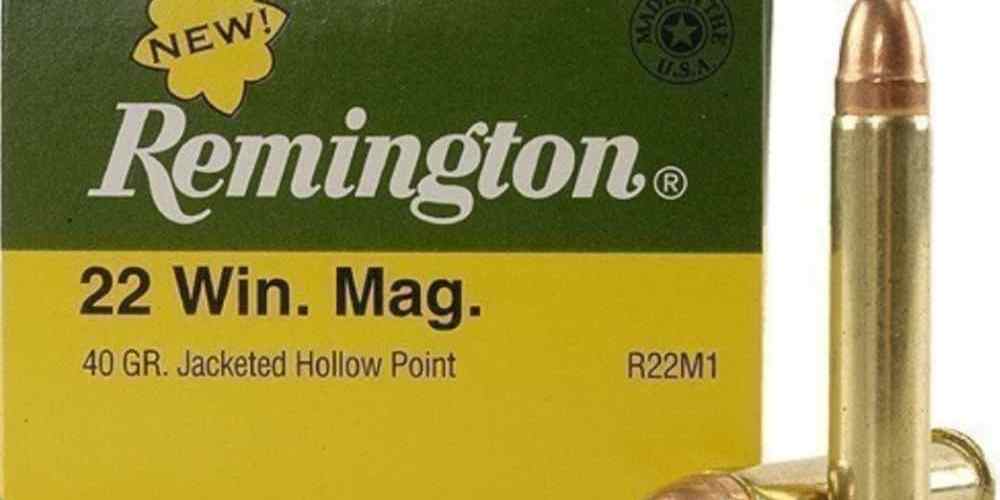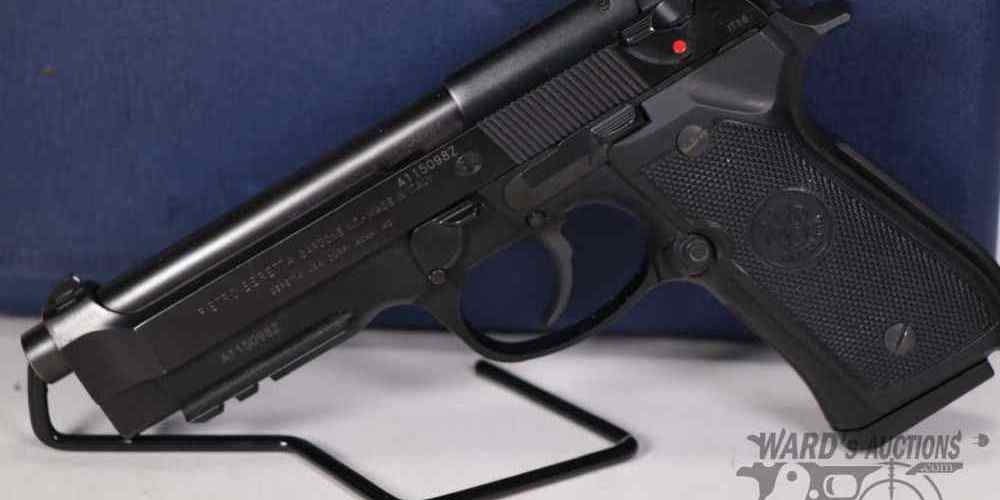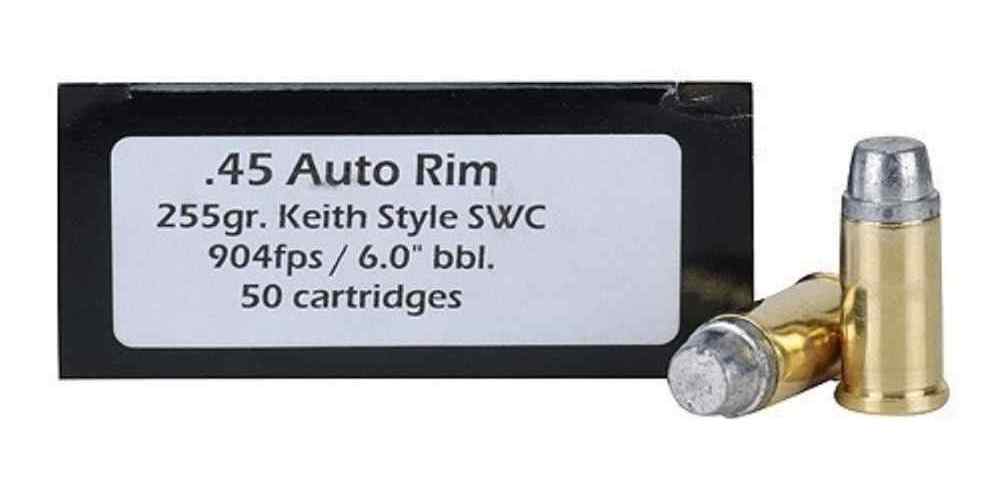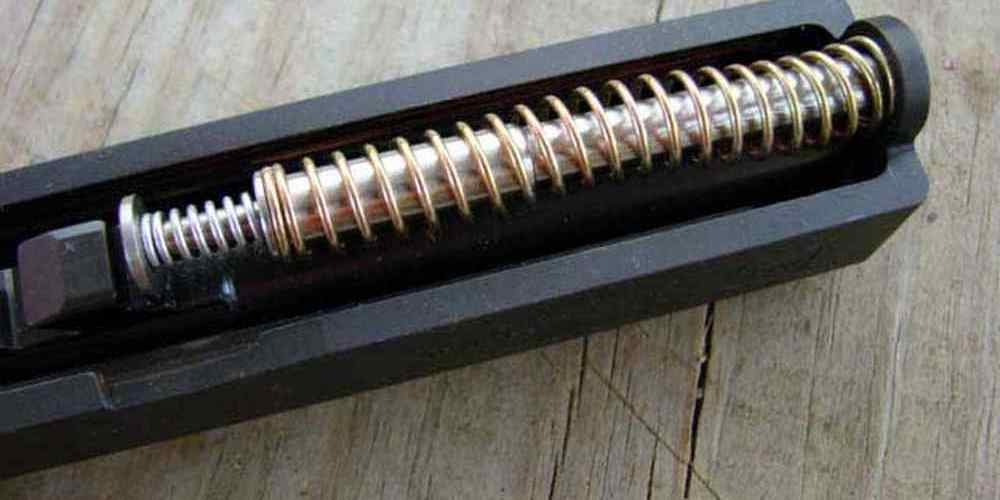“Protect your handgun, avoid steel case rounds.”
Potential Risks of Using Steel Case Rounds in Your Handgun
When it comes to ammunition for your handgun, there are a variety of options available on the market. One type of ammunition that has gained popularity in recent years is steel case rounds. These rounds are typically cheaper than brass case rounds, making them an attractive option for shooters looking to save some money. However, there has been some debate among gun enthusiasts about whether or not steel case rounds are bad for your handgun.
One potential risk of using steel case rounds in your handgun is increased wear and tear on the firearm. Steel is a harder material than brass, which means that it can cause more friction and stress on the components of your gun. Over time, this increased wear and tear can lead to malfunctions and decreased accuracy.
Another potential risk of using steel case rounds is that they may not be as reliable as brass case rounds. Steel is not as malleable as brass, which means that it may not expand and contract as easily when fired. This can lead to issues with extraction and ejection, causing jams and other malfunctions.
In addition to these risks, some shooters have reported that steel case rounds are more likely to cause damage to the chamber of their handguns. Because steel is harder than brass, it can cause more friction when being chambered and extracted. This can lead to scratches and other damage to the chamber over time.
Despite these potential risks, many shooters still choose to use steel case rounds in their handguns due to their lower cost. While it is true that steel case rounds are generally cheaper than brass case rounds, it is important to weigh the cost savings against the potential risks to your firearm.
If you do choose to use steel case rounds in your handgun, there are some steps you can take to minimize the risks. One option is to regularly clean and maintain your firearm to help prevent excessive wear and tear. You can also consider using a higher-quality steel case round from a reputable manufacturer, as these rounds may be less likely to cause damage to your handgun.
Ultimately, the decision of whether or not to use steel case rounds in your handgun is a personal one. It is important to weigh the potential risks against the cost savings and make an informed decision based on your own preferences and shooting habits.
In conclusion, while steel case rounds may offer a cheaper alternative to brass case rounds, there are potential risks associated with using them in your handgun. Increased wear and tear, reliability issues, and damage to the chamber are all factors to consider when deciding whether or not to use steel case rounds. By taking proper care of your firearm and choosing high-quality ammunition, you can help minimize these risks and enjoy shooting with steel case rounds safely.
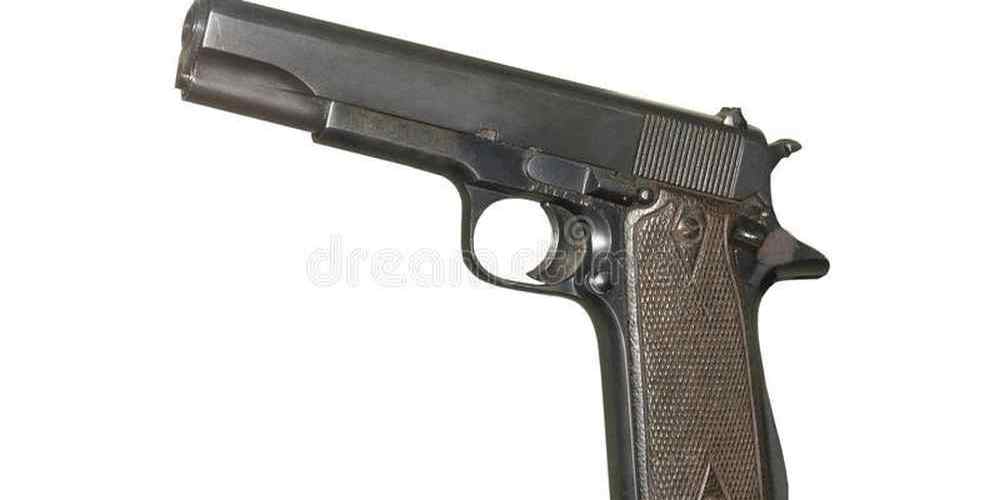
Impact of Steel Case Rounds on Handgun Performance
Steel case rounds have long been a topic of debate among firearm enthusiasts. Some claim that using steel case ammunition can cause damage to your handgun, while others argue that it is a cost-effective alternative to traditional brass casings. In this article, we will explore the impact of steel case rounds on handgun performance and address some common misconceptions surrounding their use.
One of the main concerns with steel case ammunition is its potential to wear down the internal components of a handgun. Because steel is harder than brass, some believe that using steel case rounds can cause increased wear and tear on the extractor, ejector, and other parts of the firearm. While it is true that steel is harder than brass, modern handguns are designed to withstand the pressure and friction that comes with firing steel case ammunition.
In fact, many manufacturers specifically design their firearms to be compatible with steel case rounds. This includes using high-quality materials and coatings that are resistant to corrosion and abrasion. Additionally, some manufacturers offer warranties that cover the use of steel case ammunition in their firearms, further dispelling the myth that it can damage your handgun.
Another misconception surrounding steel case rounds is that they are less accurate than brass casings. While it is true that steel case ammunition may not be as consistent as brass in terms of weight and thickness, modern manufacturing techniques have greatly improved the quality of steel case rounds. This means that shooters can expect reliable performance and accuracy when using steel case ammunition in their handguns.
Cost is another factor to consider when deciding whether or not to use steel case rounds. Steel case ammunition is typically less expensive than brass, making it an attractive option for shooters who go through a lot of rounds at the range. While some may argue that the cost savings are not worth the potential risk of damaging your handgun, many shooters have reported no issues with using steel case ammunition in their firearms.
Ultimately, the decision to use steel case rounds in your handgun comes down to personal preference and budget constraints. If you are concerned about potential damage to your firearm, it is always best to consult with the manufacturer or a qualified gunsmith before making a decision. However, for most shooters, using steel case ammunition should not pose any significant risk to their handguns.
In conclusion, steel case rounds are a viable option for shooters looking to save money on ammunition without sacrificing performance. While there are some concerns surrounding their use, modern handguns are generally capable of handling the pressures associated with firing steel case ammunition. As always, it is important to practice proper maintenance and care for your firearm to ensure reliable performance regardless of the type of ammunition you choose to use.
Comparing Steel Case Rounds to Brass Case Rounds for Handgun Use
Steel case rounds have long been a controversial topic in the world of firearms. Some shooters swear by them, claiming they are just as reliable and effective as brass case rounds. Others, however, argue that steel case rounds can cause damage to your handgun over time. So, are steel case rounds really bad for your handgun?
To answer this question, it’s important to first understand the differences between steel case rounds and brass case rounds. Steel case rounds are typically cheaper than brass case rounds, making them an attractive option for budget-conscious shooters. However, steel is harder than brass, which can lead to increased wear and tear on your handgun’s chamber and extractor.
When a steel case round is fired, the steel casing does not expand as much as a brass casing would. This can cause the steel casing to stick in the chamber of the handgun, leading to extraction issues. Over time, this can result in increased wear on the extractor and potentially damage to the chamber.
Another factor to consider is the coating on steel case rounds. Some manufacturers apply a polymer coating to their steel casings to help with extraction and reduce friction. While this can help mitigate some of the potential issues with steel case rounds, it may not completely eliminate them.
On the other hand, brass case rounds are softer and more malleable than steel case rounds. This means that they expand more easily when fired, reducing the likelihood of extraction issues. Brass also has better lubricity than steel, which can help prevent excessive wear on your handgun’s chamber and extractor.
In addition to potential damage to your handgun, some shooters also argue that steel case rounds are less accurate than brass case rounds. This is due to inconsistencies in the manufacturing process of steel casings, which can lead to variations in bullet seating depth and overall cartridge dimensions.
Despite these potential drawbacks, many shooters still choose to use steel case rounds for their handguns. The cost savings alone can be a significant factor for those who shoot frequently or in high volumes. Additionally, some handguns are specifically designed to handle steel case ammunition without issue.
If you do choose to use steel case rounds in your handgun, there are some steps you can take to minimize potential damage. Regularly cleaning and maintaining your handgun can help prevent excessive wear and tear. Using a quality lubricant can also help reduce friction and improve extraction.
In conclusion, while there are valid concerns about the potential damage that steel case rounds can cause to your handgun, they are not inherently “bad” for your firearm. Like any ammunition choice, it’s important to weigh the pros and cons and make an informed decision based on your individual needs and preferences. Ultimately, proper maintenance and care of your handgun will go a long way in ensuring its longevity regardless of the type of ammunition you choose to use.
How to Properly Maintain Your Handgun When Using Steel Case Rounds
Are Steel Case Rounds Bad for Your Handgun?
When it comes to ammunition, there is often a debate about whether steel case rounds are bad for your handgun. Some shooters swear by them, while others avoid them like the plague. So, what’s the truth? Let’s dive into the topic and explore whether steel case rounds are really harmful to your firearm.
One of the main concerns with steel case rounds is that they are harder on your gun’s chamber compared to brass case rounds. Steel is a harder material than brass, so it can cause more wear and tear on the chamber over time. This can lead to issues such as extraction problems and even potential malfunctions if not properly maintained.
However, it’s important to note that modern firearms are built to handle a wide range of ammunition types, including steel case rounds. As long as you take proper care of your handgun and follow some basic maintenance tips, you can safely shoot steel case rounds without causing significant damage to your firearm.
One key aspect of maintaining your handgun when using steel case rounds is to regularly clean and inspect your firearm after each shooting session. Steel case rounds tend to produce more carbon buildup compared to brass case rounds, so it’s crucial to clean your gun thoroughly to prevent any potential issues.
Make sure to pay special attention to the chamber area when cleaning your handgun. Use a good quality cleaning solvent and a bore brush to remove any carbon buildup and debris that may have accumulated from shooting steel case rounds. Regular cleaning will help prevent any potential extraction problems and ensure that your gun functions properly.
In addition to regular cleaning, another important aspect of maintaining your handgun when using steel case rounds is to inspect your firearm for any signs of wear or damage. Check for any cracks or bulges in the chamber area, as these can indicate that your gun is experiencing excessive stress from shooting steel case rounds.
If you notice any signs of wear or damage, it’s best to consult with a professional gunsmith to determine the best course of action. Ignoring potential issues can lead to more serious problems down the road, so it’s better to address them early on before they escalate.
Another tip for properly maintaining your handgun when using steel case rounds is to periodically replace key components such as recoil springs and extractors. These parts are subjected to more stress when shooting steel case rounds, so it’s important to replace them regularly to ensure optimal performance and reliability.
By following these maintenance tips and taking proper care of your handgun, you can safely shoot steel case rounds without worrying about damaging your firearm. Remember that regular cleaning, inspection, and component replacement are key aspects of maintaining your handgun when using steel case rounds.
In conclusion, while steel case rounds may be harder on your handgun compared to brass case rounds, they can still be safely used as long as you take proper care of your firearm. By following these maintenance tips and staying vigilant about inspecting and cleaning your handgun, you can enjoy shooting steel case rounds without compromising the performance or longevity of your firearm.
Expert Opinions on the Use of Steel Case Rounds in Handguns
Steel case rounds have been a topic of debate among handgun owners for quite some time. Some shooters swear by them, citing their affordability and reliability, while others claim that they can cause damage to your firearm. So, are steel case rounds bad for your handgun? Let’s delve into the expert opinions on this matter to help you make an informed decision.
One of the main concerns regarding steel case rounds is their potential to cause excessive wear and tear on your handgun. Many shooters believe that the harder steel cases can be rougher on the extractor and chamber of the firearm compared to brass cases. This can lead to increased maintenance and potentially shorten the lifespan of your handgun.
However, according to experts in the firearms industry, the idea that steel case rounds are inherently bad for your handgun is somewhat of a misconception. While it is true that steel is harder than brass, modern handguns are designed to handle a variety of ammunition types, including steel case rounds. Manufacturers take into account the different materials used in cartridges when designing their firearms, ensuring that they can withstand the pressures and stresses associated with shooting.
That being said, it is important to note that not all handguns are created equal. Some older or more delicate firearms may not be as well-suited to handle steel case rounds as newer models. If you have a vintage or collectible handgun, it may be best to stick with brass case ammunition to avoid any potential damage.
Another factor to consider when using steel case rounds is their coating. Many steel case rounds are coated with a layer of lacquer or polymer to prevent corrosion and improve feeding reliability. While this coating can help protect the casing from rusting, some shooters worry that it can melt and gum up their handgun’s chamber during rapid firing.
However, experts suggest that as long as you are using quality ammunition from reputable manufacturers, the risk of the coating causing issues with your handgun is minimal. It is always a good idea to clean your firearm regularly and inspect the chamber for any build-up after shooting steel case rounds to ensure proper function.
In terms of performance, some shooters claim that steel case rounds are less accurate than brass case ammunition. While there may be some truth to this due to variations in casing material and manufacturing processes, the difference in accuracy is often negligible for most recreational shooters. If you are shooting competitively or require pinpoint precision in your shots, you may want to stick with brass case ammunition for consistency.
In conclusion, while there are valid concerns surrounding the use of steel case rounds in handguns, they are not inherently bad for your firearm. As long as you are using quality ammunition and maintaining your handgun properly, shooting steel case rounds should not cause any significant issues. Ultimately, the decision on whether or not to use steel case rounds in your handgun comes down to personal preference and what works best for your specific firearm.




